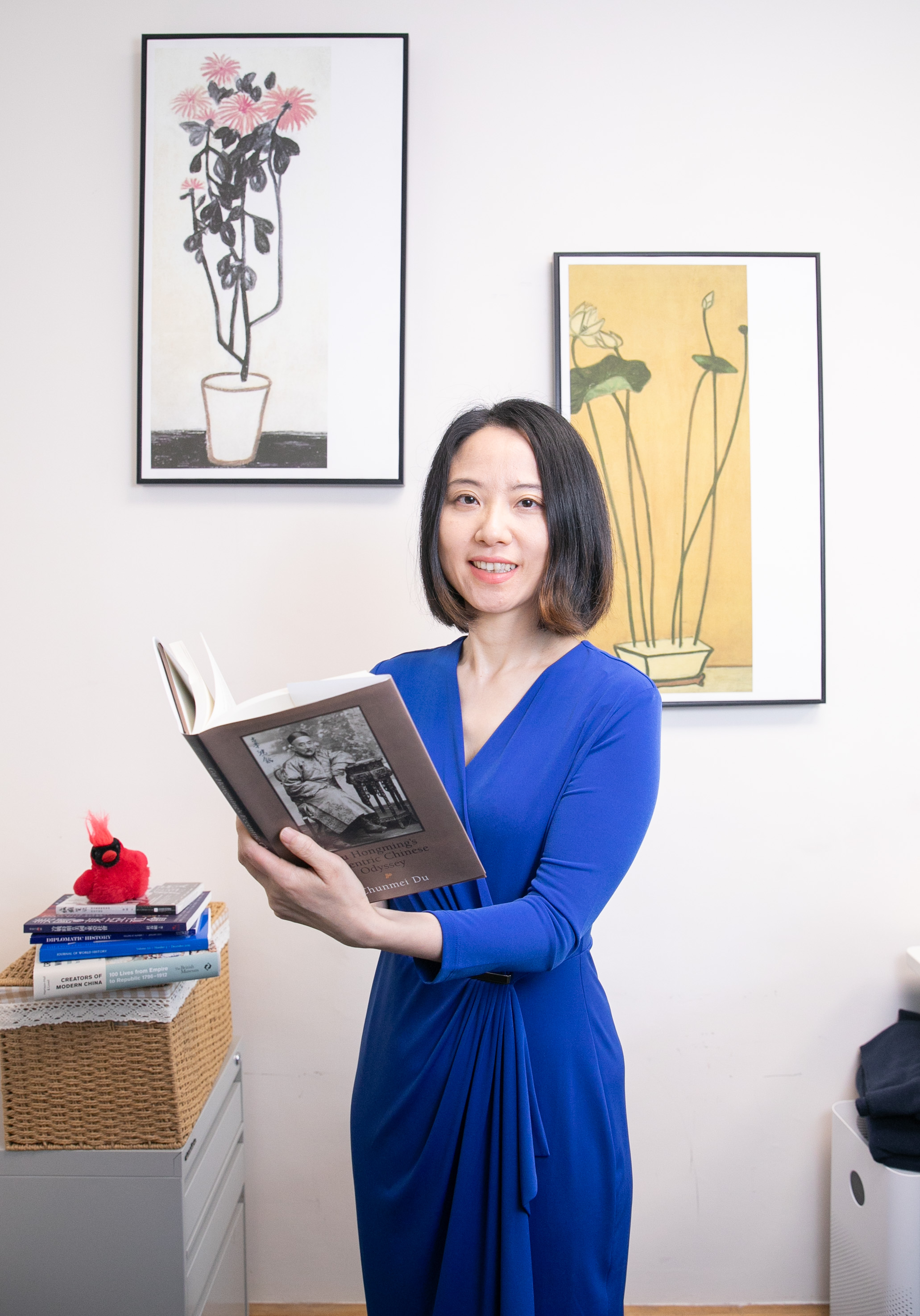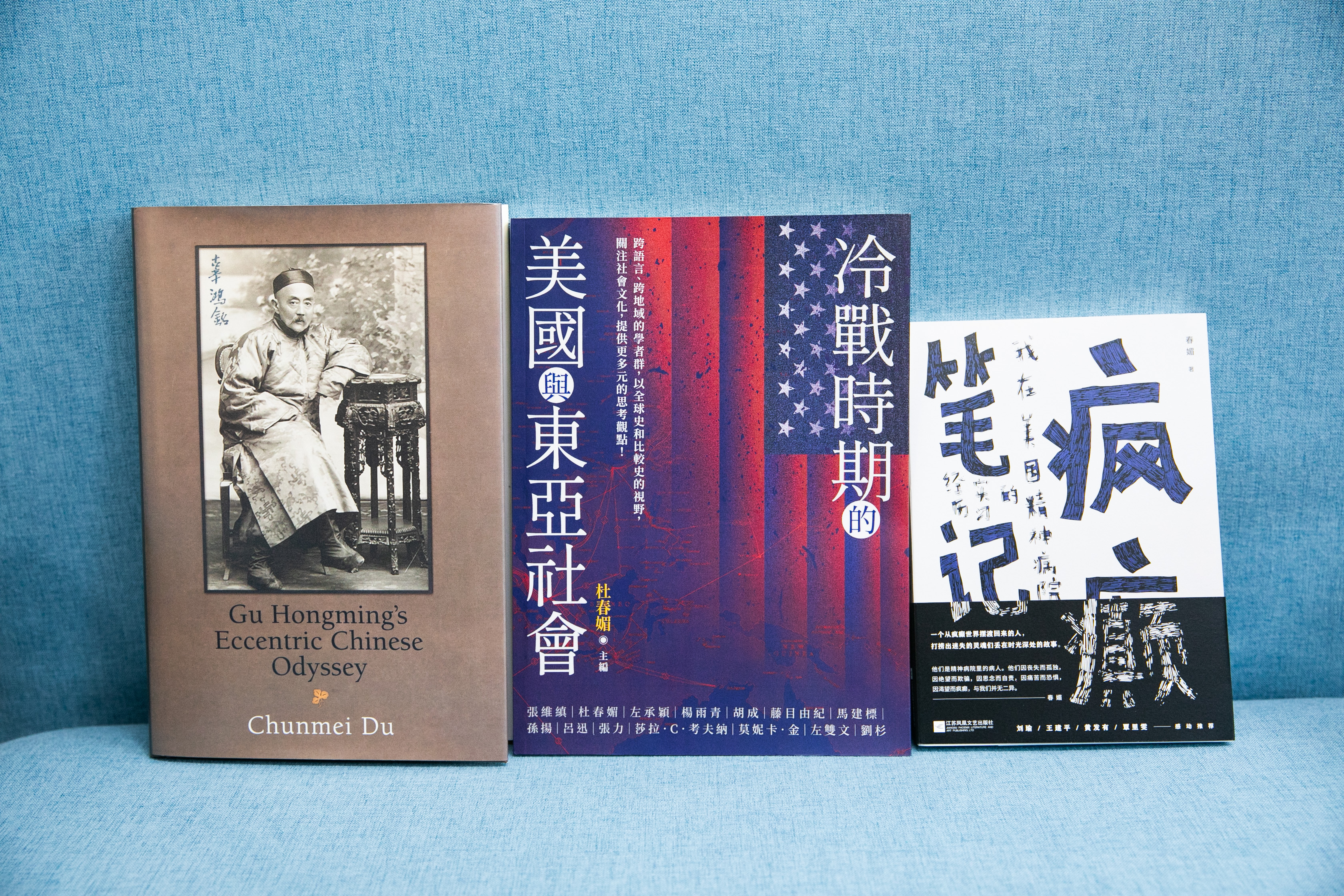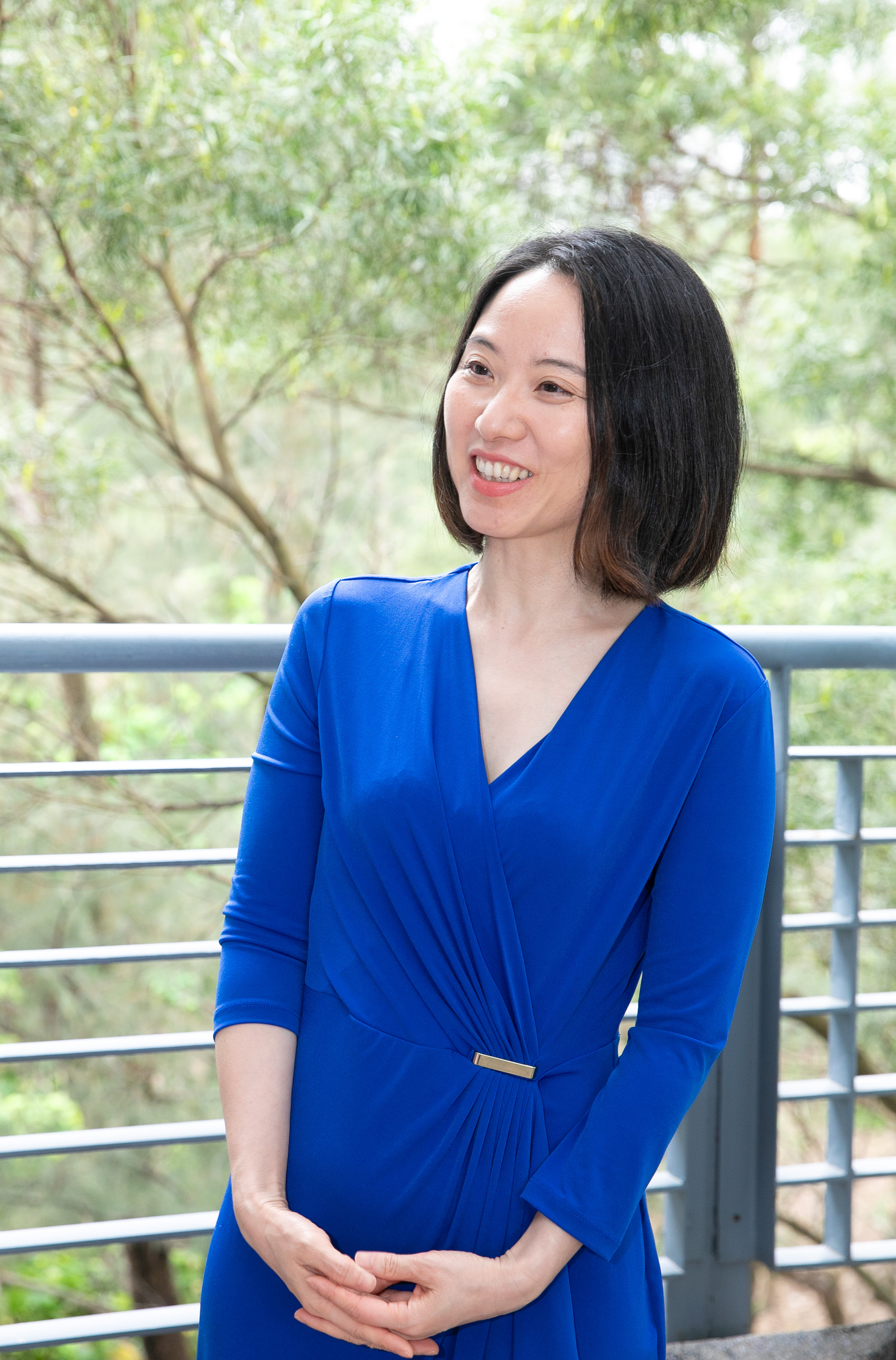
6 minute read
NEH Fellowship winner Prof Du Chunmei
Text: Zelda Lau
Photos: Hazel Chow
The multidisciplinary historian discusses how her work led to becoming the only Hong Kong recipient of the prestigious fellowship.
A scholar, psychotherapist, bilingual writer, and dancerthis is how Associate Professor Du Chunmei of the History Department at Lingnan University defines herself on her website. While many people may assume history is all about names, dates, places, and events, Prof Du, an enthusiast, delves deep into people’s lives and relationships.
Watch the interview highlights: https://youtu.be/t4LI8tKuR4E?si=MlufKq8uumnfRF_v

“As a historian of modern China, I have always been interested in studying human beings as individuals, and curious about what people think, why they think the way they do, and what choices they make,” she says.
In January 2024, Prof Du received a one-year grant from the highly respected National Endowment for the Humanities (NEH), awarded to only eight per cent of all submitted humanities proposals nationwide in the US.
One of only three fellowships outside the US in this submission, Prof Du’s US$60,000 (HK$470,000) grant is for her book, “The Forgotten Occupation: Everyday Encounters between American Soldiers and the Chinese, 1945-1949”, which covers the US occupation of China at the end of World War II.
As a historian of modern China, I have always been interested in studying human beings as individuals, and curious about what people think, why they think the way they do, and what choices they make.
“My book re-examines this critical period in Chinese history by focusing on the everyday worlds, the ordinary citizens, and how they interacted with American soldiers in the war’s aftermath. I treat them, both groups, as kind of informal ambassadors,” she says. She looks at how the US and China parted ways from being Allies during World War II to the socalled “loss of China” in 1949.
Unlike traditional history that focuses on the elites, diplomats, and top leaders, Prof Du’s work takes a closer look at everyday actors, and how grassroots relationships helped to shape political dynamics, as well as the long-term, still evident impact.
The project is the sole Hong Kong winner out of 260 entries awarded US$33.8 million (HK$264 million) in NEH support for museum development, heritage documentaries, conservation and associated training, college and university programmes, and new research and digital advancements in the humanities.
Prof Du’s undergraduate studies were a joint programme of literature, history, and philosophy at the People’s University of China, Beijing. She spent about two years in the history department, and another two in the philosophy department, “so intellectual history is like a natural convergence between philosophy and history, combining my interests in the two fields.”

Enthusiastic about the human mind from a historical perspective, she gained a PhD degree in East Asian Studies from Princeton University, and has published on many topics, including Chinese conservatism, ethnic minority identities, anti-Americanism, and American soldiers in China after World War II.
One of her best works, Gu Hongming’s Eccentric Chinese Odyssey, is the first comprehensive study in English of Gu Hongming - both the private individual and the public cultural figure. She examines the controversial scholar intellectually and psychologically across geographical, national, and cultural boundaries in a new global context.
“That is my first monograph in English based on my PhD dissertation. I traced Gu Hongming’s steps from Southeast Asia, where he grew up in a Chinese diasporic family, to Europe, where he received an excellent Scottish education, and finally back to China in his late 20s, where he metamorphosed from an English-speaking, western-educated colonial figure to a ‘Chinaman again’ with a long queue, and spent the rest of his life translating Confucian writings and explaining Chinese traditions to a western audience.”
What fascinates Prof Du about Gu Hongming, one of the best-known experts and elucidators of Chinese traditions to the early-twentieth century Western world, is that “he presents us with a lens to see what China is, what the East is, what Chinese tradition is, and what Western culture is. Yet, interestingly, his ways of understanding China and Chinese traditions were greatly influenced by his Western learning and a kind of hybrid.”
Prof Du’s insights into human beings are not only in her history books. A National Certified Counsellor of the US, she is also the author of《瘋癲筆記——我在美國精神病院的實習經 歷》(Notes of Insanity: My Experience Working in an American Psychiatric Hospital), which documents the cultural, mental, and social struggle of her 700-hour clinical internship.
“If my academic studies allow me to learn how people think, psychotherapy focuses more on how people feel,” she believes.
It was this fascinating, even life-changing experience that allowed Prof Du to witness many psychiatric patients’ sufferings, to help them in a very direct and personal way, and, most importantly, “to better understand the complexities of human beings including my students.” She also currently serves as the Hostel Warden of Lingnan University The Jockey Club New Hall (G), whose motto is “Holistic well-being”.
“By that I really mean the body, the mind and the emotions; it’s not just their academic studies, but also the growth of our students as human beings - they should be healthy, be happy, be kind, enjoy what they do, and find meanings in life,” Prof Du says, and she hopes students realise they are not alone in this world, “there are many people who will empathise with them and extend the help when they need it.”

Recently, in the classroom, Prof Du has been developing a new course on sensory history, which encourages students to study history from many different aspects. This kind of teaching comes from her enthusiasm for dance, giving her a deeper understanding of the body and the whole experience.
“Most professors spend hours and days writing papers and preparing lessons in the office, but we kind of forget there are other ways of learning, for example, experiential learning,” she explains, and with the support of a teaching development grant, she invited a tea expert to hold a tasting for students to “taste” China’s encounters with the outside world.
“Studying history involves not just seeing, but also the less common ways such as hearing, tasting, smelling, and touching. Sensory history is something of a new approach, both in my research and teaching, interpreting sensory experiences and meanings in a historical and cultural context.
“I really like Lingnan students and find them very polite and hardworking. I hope to see them take more initiative. Dream high, work hard, and I am here to help them achieve their dreams,” Prof Du concludes.










